Our Network
Members I-P
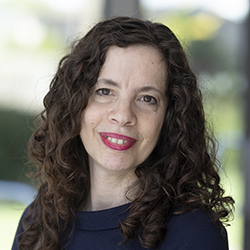
Laura Itzhaki
Dept of Pharmacology, University of Cambridge
Organiser of the 2024 ProteostasisUK Conference
My research interests include protein folding, engineering and design; molecular therapeutics; and targeted protein degradation. My group is exploiting our understanding of protein-protein interactions to harness proteostasis networks and thereby manipulate protein stability and disease outcome. We are combining target-engagement modules and degradation-inducing modules in a mix-and-match format to identify the best combination for effective knockdown of the target with the aim of co-opting the broadest range of degradation machineries and thereby tackling hard-to-drug targets and disease states.
Keywords: protein engineering; targeted protein degradation; molecular therapeutics

Maria Jimenez-Sanchez
Maurice Wohl Clinical Neuroscience Institute, King's College London
We are interested in the protective role of proteostasis mechanisms in neurodegenerative diseases. In particular, our lab investigates how chaperones and autophagy work in glial cells, mainly in astrocytes, and their relevance to glial function and glia-neuron communication.
Keywords: Neurodegeneration; Protein folding and chaperones; Protein degradation

Seyed Mehdi Jafarnejad
Patrick G Johnston Centre for Cancer Research, Queen's University Belfast
We are interested in the mechanisms of regulation of mRNA translation, including microRNA-induced silencing and Ribosome Quality Control (RQC), and their roles in cancer drug response and the innate immune response to viral infections.
Keywords: Cancer; Protein translation and ribosomes; Viruses
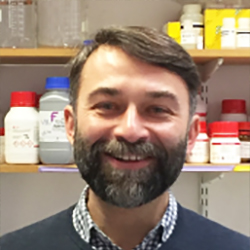
Viktor Korolchuk
Biosciences Institute, Newcastle University
My scientific interests lie in the area of intracellular protein trafficking and degradation pathways. The current focus of research in my laboratory is molecular mechanisms and cellular functions of autophagy.
Keywords: Neurodegeneration; Lysosome; Ageing

Nicholas Ktistakis
Department of Signalling, Babraham Institute
We study autophagy in various mammalian cell models, from tissue culture immortalised cells to iPSC-derived neurons.
Keywords: Mitochondria; Protein degradation; Lysosome

Wei-Li (William) Kuan
ALBORADA Drug Discovery Institute, University of Cambridge
We are an academic drug discovery institute with a strong interest to target proteostasis for neurodegenerative conditions. We can help translating your potential target of interest into tool molecules for testing in preclinical models. We are supported by our in-house compound libraries (annotated and diversity), assay development and HTS capabilities, disease and pharmacodynamic modelling expertise, and a team of medicinal chemists and structural biologists.
Keywords: Development; Neurodegeneration; Model organisms (C. elegans, Drosophila, etc)
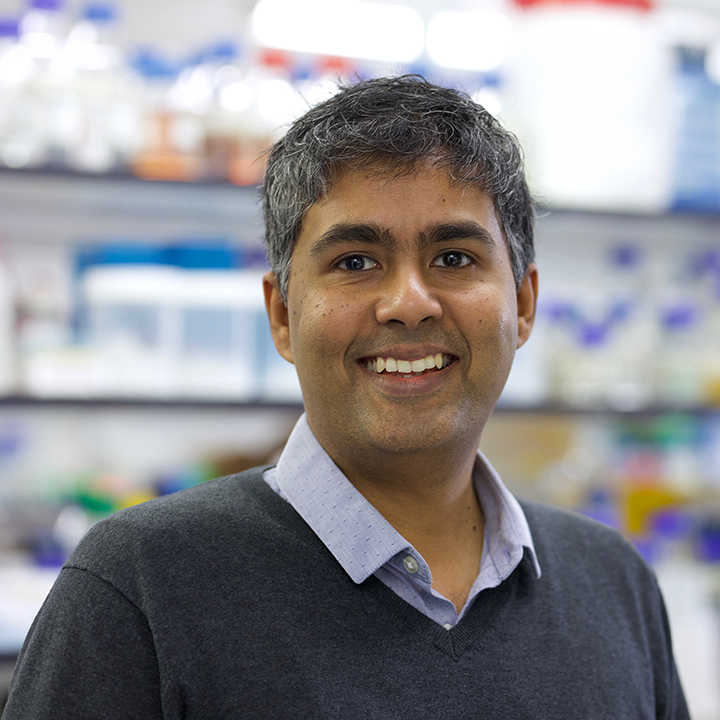
Yogesh Kulathu
MRC Protein Phosphorylation & Ubiquitylation Unit, School of Life Sciences University of Dundee
Our lab dissects the molecular mechanisms by which ubiquitin and ubiquitin-like modifiers orchestrate cellular pathways to maintain homeostasis. Using integrated structural, biochemical, proteomic, and cell biology approaches, we investigate how cells regulate protein synthesis, quality control, and degradation. We focus on the dynamic regulation of these pathways during cellular stress responses and their implications for human disease.
Keywords: Development; Neurodegeneration; Model organisms (C. elegans, Drosophila, etc)
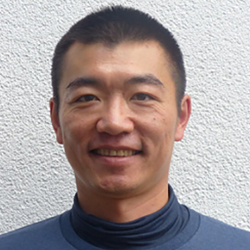
Yu-Chiang Lai
School of Sport, Exercise and Rehabilitation Science, University of Birmingham
The role of ubiquitin signalling in skeletal muscle biology The role of proteostasis in ageing and exercising muscles
Keywords: Ageing; Post-translational modifications (PTMs); Protein folding and chaperones
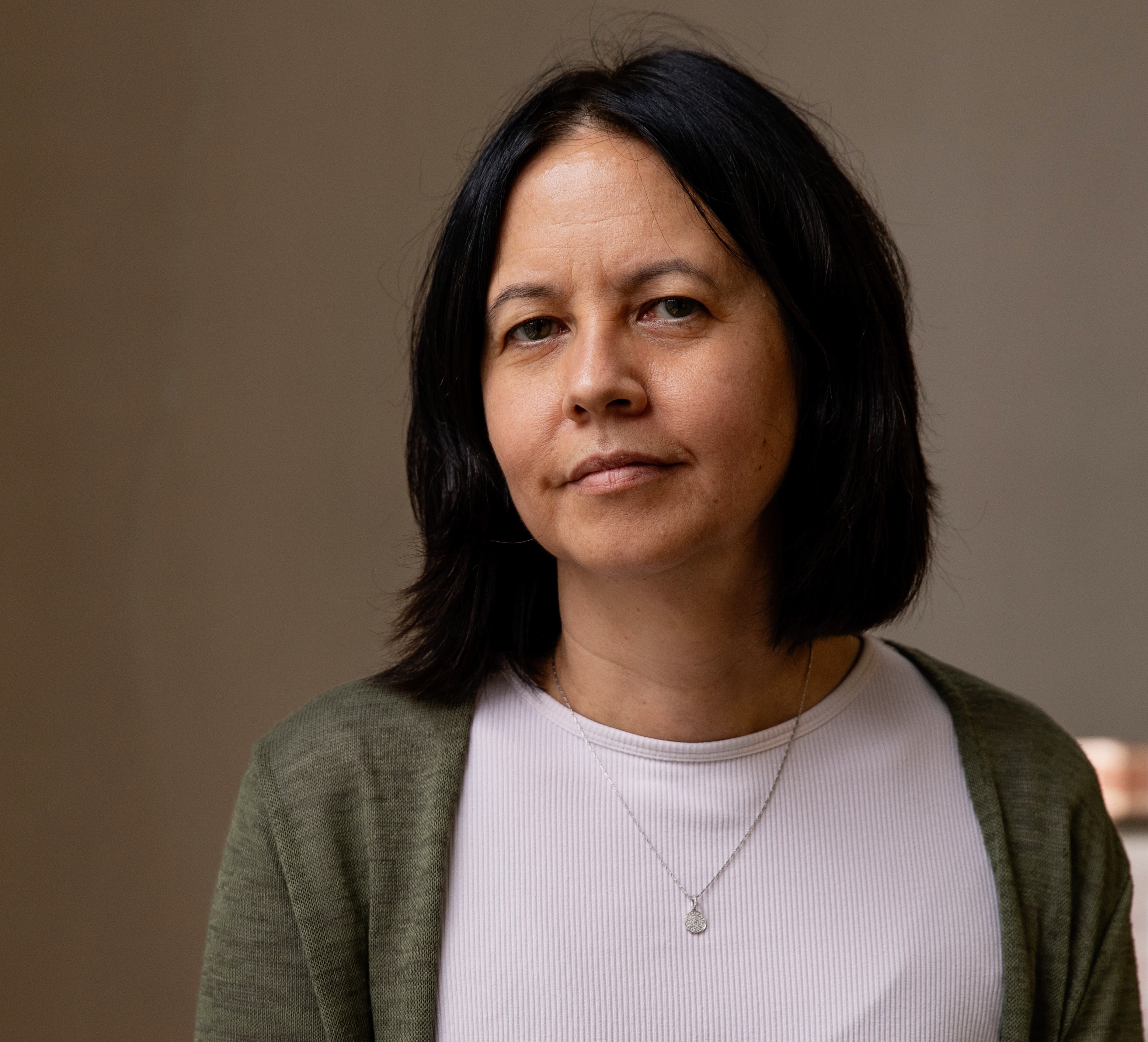
Heike Laman
Department of Pathology, University of Cambridge
My laboratory investigates the mechanisms of disease caused by the deregulation of E3 ubiquitin ligases, focusing on neurodegeneration, tissue development, male sterility, and cancer. We use mouse models, 2D and 3D organoids derived from human iPSCs to understand the effects of pathological mutations affecting protein and mitochondrial homeostasis and the effects on cells, tissues, and whole animal physiology. We are also investigating the new drug modalities (PROTACs) that harness the ubiquitin proteasome system to treat disease.
Keywords: Neurodegeneration; Mammalian models / cell culture; Protein degradation

Jon Lane
School of Biochemistry, University of Bristol
My lab studies autophagy and its roles in promoting cellular resilience. We mainly use human induced pluripotent stem cell (hiPSC)-derived neurons and glia to test how autophagy contributes to neuronal resilience and neuroinflammation in Parkinson's and other human neurodegenerative diseases.
Keywords: Stress responses; Neurodegeneration; Mammalian models / cell culture
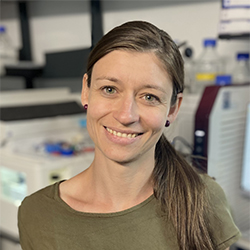
Janin Lautenschlager
Cambridge Institute for Medical Research, Department of Clinical Neurosciences, School of Clinical Medicine, University of Cambridge
Our lab investigates protein phase separation at the synapse. We study how condensates are regulated in a biological context, spanning from in vitro biochemical assays, to cellular studies, iPSC-derived neurons and subsynaptic studies in Lamprey giant synapses. Ultimately, we aim to decipher how proteins are regulated in time and space and how this impacts neuronal function and disease..
Keywords: Neurodegeneration; Condensates; Post-translational modifications (PTMs)
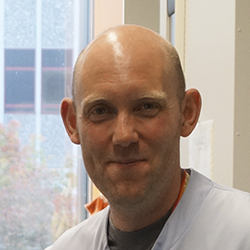
Patrick Lewis
Department of Comparative Biomedical Sciences, Royal Veterinary College, University of London
My group investigates how genetic variants can influence the risk of developing neurodegenerative diseases such as Parkinson's, with a particular focus on mutations in LRRK2. There is strong evidence linking LRRK2 to Proteostasis via macroautophagy and lysosomal dysfunction.
Keywords: Neurodegeneration; Lysosome; Aggregation
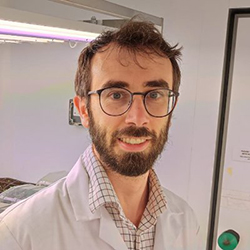
Francesco Licausi
Department of Biology, University of Oxford
We study the contribution of oxygen-dependent protein destabilisation to allow hypoxia sensing in cells, with a focus on plant cells. We are also interested in enginerring selective protein degradation for sensing other environmental cues.
Keywords: Plants; Stress responses; Development

Catherine Lindon
Department of Pharmacology, University of Cambridge
We are interested in ubiquitin-mediated proteolysis and how it is used to target selected proteins for degradation, both in the context of endogenous regulatory pathways in the cell cycle and as a potential therapeutic opportunity afforded by the advent of tools for targeted protein degradation. Current projects in the lab can be described by key words APC/C, mitosis, AURKA, OTUD6A, DUBs, PROTACs, TPD.
Keywords: Protein degradation; Mammalian models / cell culture; Post-translational modifications (PTMs)

Michelle Linterman
Department of Immunology, Babraham Institute
Our research aims to understand how vaccination supports long-lived antibody mediated immunity across the lifespan.
Keywords: Ageing; Mammalian models / cell culture; Post-translational modifications (PTMs)
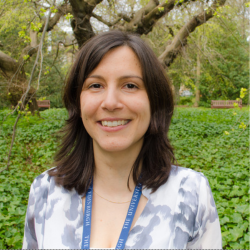
Susana R. Louros
Centre for Discovery Brain Sciences, Simons Initiative for the Developing Brain, University of Edinburgh
My lab is investigating how dysfunctional protein turnover results in synaptic dysfunction, circuit abnormalities and behavioral changes in models of autism and intellectual disability. Our aim is to understand how best to leverage the UPS pathway for therapeutic benefit of neurodevelopmental disorders.
Keywords: Protein degradation; Protein translation and ribosomes; Post-translational modifications (PTMs)
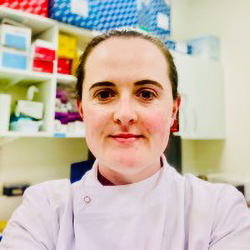
Sarah Maguire
Patrick G Johnston Centre for Cancer Research Queen's University Belfast
We integrate functional genomics and multiomics approaches to identify novel therapeutic targets that exploit proteostatic vulnerabilities. By leveraging computational and experimental strategies, we aim to develop precision medicine approaches that restore proteostasis and enhance anti-cancer immunity.
Keywords: Artificial Intelligence, Cancer, Mammalian models / cell culture

Girish Ram Mali
Sir William Dunn School of Pathology, University of Oxford
We investigate how cells assemble large multi-subunit motor proteins called axonemal dyneins which power the rhythmic beating motion of eukaryotic cilia and flagella. Our major focus is a newly discovered family of structurally and functionally diverse proteins called Dynein Axonemal Assembly Factors/DNAAFs which shepherd the folding and assembly of individual dynein subunits into functional macromolecular motors. To uncover the molecular mechanisms of DNAAFs, we combine biochemistry, integrative structural modeling, cell biology, and proteomic approaches.
Keywords: Protein folding and chaperones; Protein translation and ribosomes; Protein transport

Glenn Masson
School of Medicine, University of Dundee
Our research group is interested in GCN2, and how this is activated in cancer cells under proteostasic stress. We are looking to develop drugs which can be used to select cancer cells which have altered amino acid metabolism to compensate for the low nutrient conditions of the tumour microenvironment. We use a variety of tools to do this, primarily structural biology, biochemical and biophysical analysis, and well as cell and tissue research.
Keywords: Cancer; Stress responses; Post-translational modifications (PTMs)
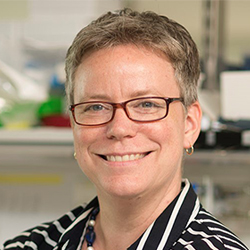
Liz Miller
Molecular, Cell and Developmental Biology, University of Dundee
Research in the Miller lab is broadly aimed at understanding basic mechanisms of secretory protein biogenesis, focusing on protein quality control and export from the ER. Our current focus is on the mechanisms of COPII vesicle formation and cargo selection.
Keywords: Protein transport; Protein translation and ribosomes; Protein folding and chaperones

James Murray
Healthy Ageing & Chronic Conditions Research Institute, Medical School, Swansea University
My laboratory is using a new teleost model to understand vertebrate ageing mechanisms. We focus on the loss of proteostasis at the organismal level and how this affects healthspan and longevity.
Keywords: Model organisms (C. elegans, Drosophila, etc); Ageing; Protein degradation

Jessica Nelson
School of Biological Sciences, Faculty of Environmental and Life Sciences, University of Southampton
Our research focuses on how proteostasis networks control cell fate decisions under stress. We combine patient-derived organoids, proteomics, and computational integration to define how secreted components of the proteostasis machinery drive early pancreatic cancer initiation. By targeting these early stress response signals, we aim to enable earlier diagnosis and cancer prevention strategies.
Keywords: Cancer; Mammalian models / cell culture; Stress responses

Yvonne Nyathi
School of Biomedical Sciences, Faculty of Biological Sciences, University of Leeds
Our laboratory investigates molecular mechanisms of membrane protein proteostasis, from their synthesis to integration into target membranes. Employing a multidisciplinary approach, we harness proteomics, high-resolution imaging, bioinformatics, biochemistry, and structural biology to deepen our understanding of these vital processes and their impact on cellular function and disease.
Keywords: Protein degradation; Protein folding and chaperones; Protein transport
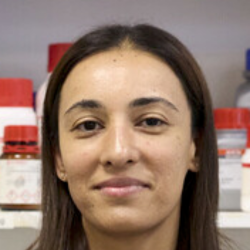
Jasmeen Oberoi
Genome Damage and Stability Centre, University of Sussex
We are interested in understanding the recruitment and regulation of oncogenic kinases by the HSP90 molecular chaperone system, using biochemical and structural biology approaches . We study the molecular mechanisms of assembly of these large HSP90:Co-chaperone:kinase complexes, and the roles of phosphorylation and dephosphorylation, with the aim of finding new ways to disrupt the cycle of HSP90-dependant kinase regulation in cancer.
Keywords: Protein folding and chaperones; Cancer; Post-translational modifications (PTMs)
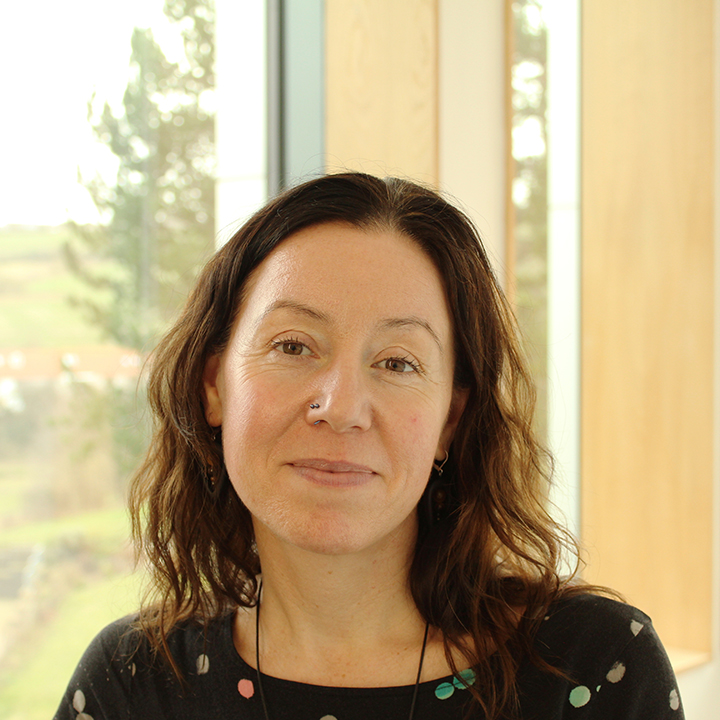
Beatriz Orosa
Institute of Plant Sciences/ University of Edinburgh
My lab is focused on studying the fundamental mechanisms underlying ubiquitin-mediated regulation of plant immunity.
Keywords: Protein degradation, Plants, Post-translational modifications (PTMs)

Eugenia Piddini
School of Cellular and Molecular Medicine, University of Bristol
We are interested in understanding how toxic protein aggregates and proteotoxic stress affect cellular fitness and cell competition. We use Drosophila and several in vitro models including human ES cells and their derivatives for our studies.
Keywords: Mammalian models / cell culture; Stress responses; Model organisms (C. elegans, Drosophila, etc)

Adan Pinto-Fernandez
CMD - NDM, University of Oxford
Our lab has an interest in studying how cellular Ubiquitylation and ISGylation influence cancer immune evasion with the final aim of translating these findings into valid therapeutic targets. To study these pathways we use state-of-the-art MS-based omics techniques such as proteomics and lipidomics in combination with immunology and cellular biology functional assays.
Keywords: Cancer; Post-translational modifications (PTMs); Viruses

Chrisostomos Prodromou
University of Sussex
I use structural, genetic and biochemical methods to determine the molecular mechanism of Hsp90 and its chaperons in proteostasis. We are currently, developing a small molecular against Hsp90 that is effective against Alzheimer's disease models in mice. We are also investigating the role of Hsp90-CDC37 complex on the activation of class 2 BRAF-mutations and how best to target specific mutants in the clinic.
Keywords: Cancer; Neurodegeneration; Protein folding and chaperones